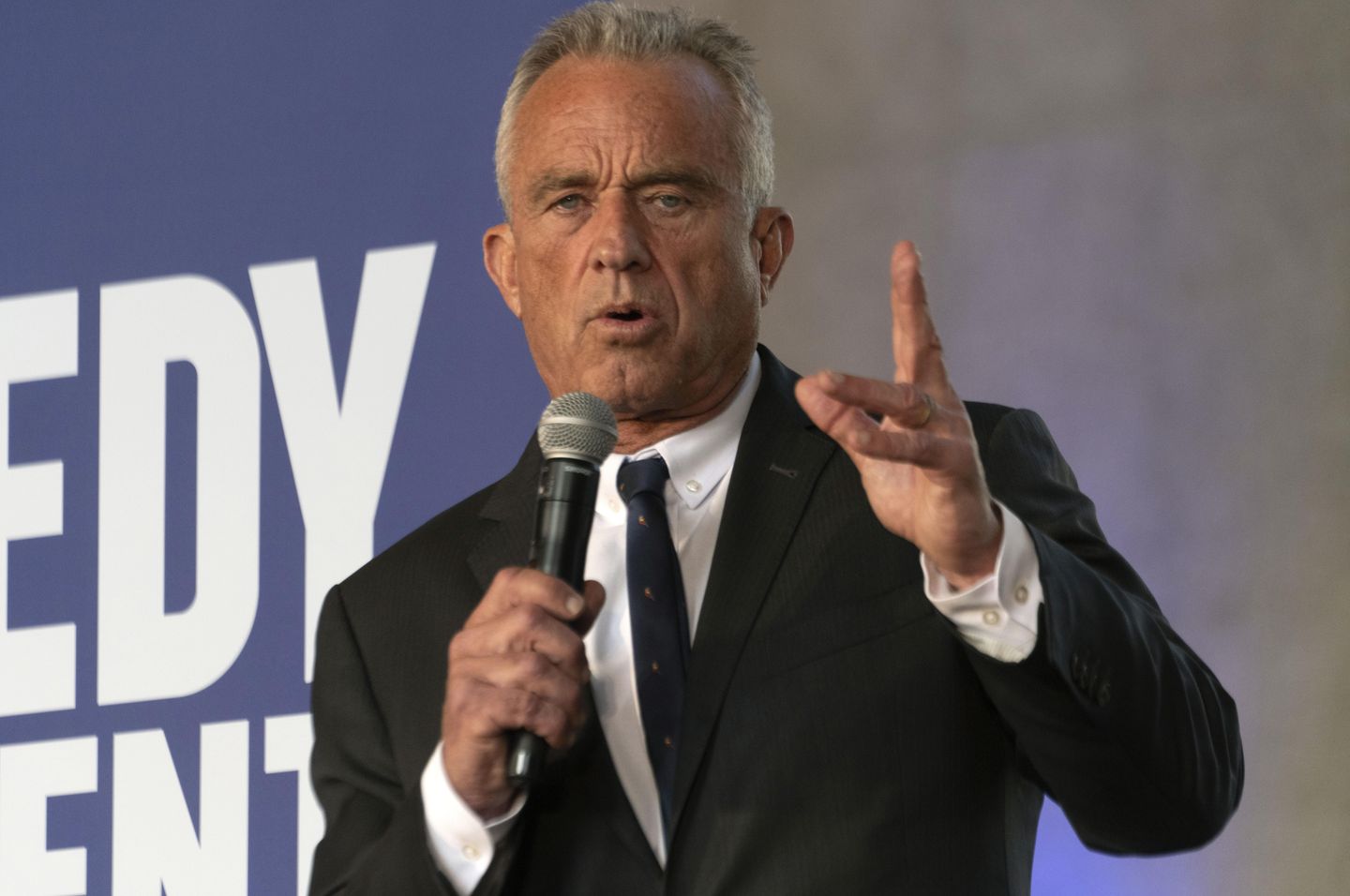Former President Donald Trump recently referred to independent candidate Robert F. Kennedy Jr. as the “most Radical Left Candidate,” despite offering him a semi-endorsement. This statement came as a surprise to many, as Kennedy is known for his outspoken criticism of vaccine mandates and other government policies. Trump’s decision to acknowledge Kennedy’s candidacy, albeit with a critical tone, highlights the growing influence of third-party candidates in the political landscape.
Kennedy, a prominent environmental activist and lawyer, has been a vocal critic of government overreach and corporate influence in politics. His stance on vaccine mandates, in particular, has garnered attention from both supporters and detractors. While some view Kennedy as a champion for individual freedom and civil liberties, others see him as a conspiracy theorist spreading misinformation about the safety and efficacy of vaccines. Trump’s decision to acknowledge Kennedy’s candidacy, despite labeling him as a “Radical Left Candidate,” reflects the complex nature of third-party politics in the United States.
Trump’s semi-endorsement of Kennedy could have significant implications for the upcoming election. By acknowledging Kennedy’s candidacy, Trump is signaling to his supporters that he is open to alternative voices within the political spectrum. This move could help Trump appeal to voters who are disillusioned with mainstream political parties and are seeking candidates who offer a fresh perspective on key issues. Additionally, Trump’s endorsement of Kennedy could further polarize the political landscape, as Kennedy’s views on vaccine mandates and other controversial topics are likely to spark debate among voters.
The relationship between Trump and Kennedy is indicative of the shifting dynamics within the Republican Party. As Trump continues to exert influence over the party, his willingness to engage with candidates who do not align with traditional conservative values suggests a broader shift towards a more inclusive political strategy. By acknowledging Kennedy’s candidacy, Trump is signaling that he is open to working with a diverse range of voices within the Republican Party and beyond. This approach could help Trump maintain his political relevance and influence in the years to come.
Overall, Trump’s semi-endorsement of Robert F. Kennedy Jr. highlights the growing influence of third-party candidates in American politics and the shifting dynamics within the Republican Party. While Trump’s characterization of Kennedy as the “most Radical Left Candidate” may have raised some eyebrows, his willingness to engage with alternative voices suggests a broader shift towards a more inclusive political strategy. Whether this move will help Trump appeal to a broader base of voters or further polarize the political landscape remains to be seen. However, Trump’s acknowledgement of Kennedy’s candidacy is likely to have a significant impact on the upcoming election and the future of third-party politics in the United States.









